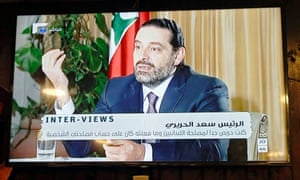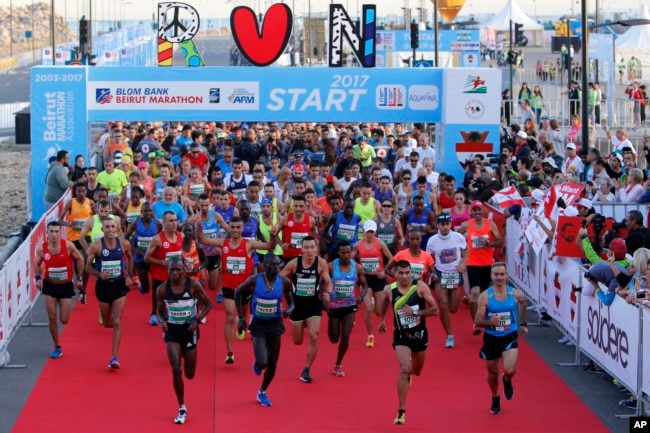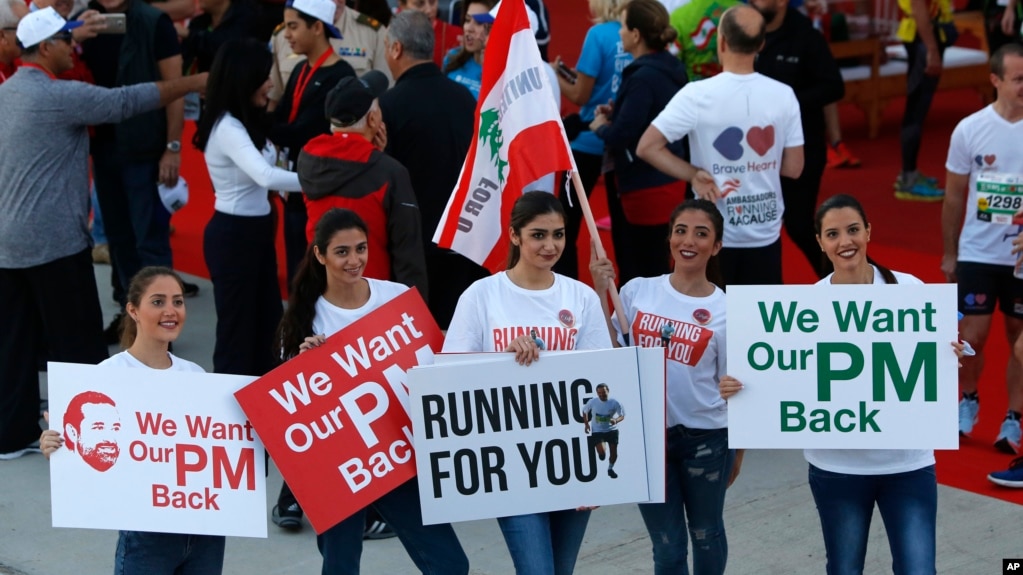
Saad Hariri has pledged he will return to Lebanon from Saudi Arabia “very soon,” in his first television interview since his shock resignation as prime minister eight days ago.In an interview from Riyadh with his party’s Future TV on Sunday, Hariri brushed aside rumours that he was under de facto house arrest in Saudi Arabia. “I am free here. If I want to travel tomorrow, I will,” Hariri told the journalist Paula Yacoubian. “I will return to Lebanon very soon to initiate the necessary constitutional procedures,” Hariri said. Wearing a suit and tie and with a Lebanese flag in the background, Hariri looked tired and spoke softly but firmly throughout the interview. He held back tears as he spoke. Mr Hariri recognised that he did not resign in the “usual way” but said he wanted to give his country a “positive shock”. “My resignation came as a wake-up call for Lebanon,” he said. “Yes, it would have been better that I come to Lebanon (to resign) but there was danger,” he said. “I wrote (my resignation) with my own hand. I wanted to create a positive shock, not a negative one.”
He said the unity government he formed a year ago was supposed to stick to an agreement not to interfere in regional affairs but that Hezbollah has not kept up its end of the deal. Apparently seeking to show he was not being detained by the Saudis, Hariri told the interviewer: “I am free.” He said his resignation was his own decision, dismissing reports he was forced into it. But he also said he is looking into security arrangements before returning to Lebanon, suggesting his life was in danger. “I saw what happened … when my father was martyred. I don’t want the same thing to happen to me,” Hariri said. His father, former Prime Minister Rafik Hariri, was killed by a car bomb in Beirut in 2005.
Speculation has been rife that Saudi Arabia summoned Hariri to Riyadh and broadsided him with a demand to resign because he wouldn’t confront Lebanon’s powerful Iranian-backed Hezbollah militant group — a charge the kingdom has denied. The political turmoil has thrust Lebanon to the fore of the Saudi-Iranian rivalry after it managed to avoid the worst of the Syrian civil war next door, creating a potential new center of conflict in the tumultuous Middle East. At least 5 Lebanese TV channels including NBN, NewTV, TeleLiban, OTV wouldn’t broadcast the Hariri interview, adopting President Michel Aoun’s position that given Hariri’s circumstances, “his words will not reflect the truth. Just hours before Hariri’s interview, Aoun blasted the “obscure circumstances” around the resigned prime minister’s stay in Riyadh. In a statement from his office, Aoun said: “Hariri’s freedom has been restricted and conditions have been imposed regarding his residence and the contacts he may have, even with members of his family.”
BEIRUT (Reuters) – British Foreign Secretary Boris Johnson said on Sunday he hopes Saad al-Hariri, who announced last week from Saudi Arabia that he was resigning as prime minister of Lebanon, returns to Beirut “without further delay”.


At Beirut Marathon, Lebanese Call for PM to Return
BEIRUT — Thousands of Lebanese taking part in the country’s annual marathon used the event to call on Prime Minister Saad Hariri to return home after he resigned under mysterious circumstances during a visit to Saudi Arabia. Hariri was a regular participant in the marathon, giving the international sports event a big boost. This year, President Michel Aoun had encouraged runners to call on Hariri to return. Many Lebanese suspect he was placed under house arrest as part of a Saudi plan to unravel a coalition government he had formed with Hezbollah last year.
Spectators along the 26.2 mile (42.2 kilometer) course wore hats and held signs reading “Running for you” and “Waiting for you.” Large billboards with pictures of Hariri rose overhead, and a local TV station re-aired an hour-long profile and interview with Hariri recorded last year.
One woman raised a placard reading: “We want our prime minister back.” Ibrahim al-Masri, a 37-year-old Hariri supporter, said the Lebanese don’t know if the prime minister is staying in Saudi Arabia by choice. “Whatever he chooses, we are with him. We want him to first come to Lebanon. We will die for him,” al-Masri said. Joanne Hamza, a physical education teacher who was wearing a cap with a picture of Hariri on it, said he was missed at the race. “But in a sense, his absence has been unifying. All Lebanese, from all sects, are missing their leader. This is somehow reassuring but we still want him with us.”
Despite extremely warm conditions, Kenya’s Dominic Ruto took 23 seconds off the race record to win the men’s race in 2:10:41, while Bahrain’s Eunice Chumba ran 2:28:38 to improve the women’s record by more than half a minute. Ruto overcame his favoured compatriot and defending champion Edwin Kiptoo to capture first place and the US$10,000 prize money. He out-sprinted Adane Amsalu on the finishing straight to beat the Ethiopian by four seconds, while Kiptoo could manage only third in 2:11:56.



